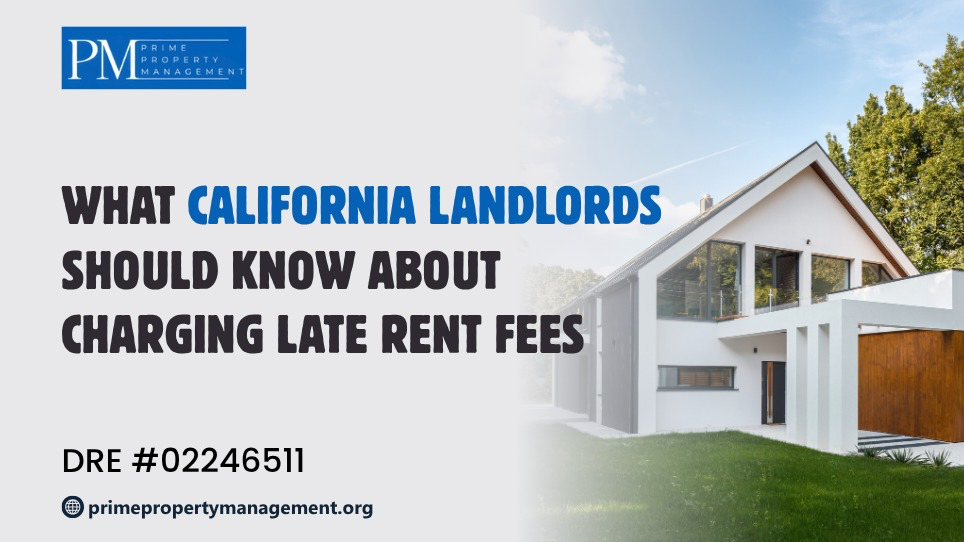California landlords have almost surely felt the strain of tracking down monthly rent payments. Its tiring and uncomfortable; hence many landlords include a late rent charge in their lease arrangement. California does not, however, make it easy.
There are many regulations to abide by, ranging from legal restrictions to what your lease must say. Well walk you in this handbook through everything you need to know about charging late rent costs in California and how to handle it properly—that is, without legal problems.
How Much Can You Charge as a Late Rent Fee in California?
Most of the time, landlords assess a late charge of 5% to 10% of the monthly rent. But that upper limit is not always safe because tenants in court might contest even a 10% charge.
That's because California Civil Code Section 1671 demands that:
- Charges need to be fair, and
- Because of the delay, they have to reflect real losses or expenses.
- Thus, a judge might not permit it if your tenant is tardy and you are demanding $100 but your real cost is just a $25 delayed banking fee and some admin time.
Pro Tip: Most landlords remain on thea safe side by charging 5%.
Don't overlook: Include it in the lease!
You legally cannot charge a late fee if your lease makes no mention of one. That explains why it's critical to clearly specify everything in the rental agreement.
The lease should comprise:
- The precise late fee level
- The date it begins to show impact.
- Any grace period you permit
- Your hands are constrained even if the rent is weeks past due without these specifics.
Grace Periods: Do You Need One?
A grace period allows tenants more time to pay rent without incurring penalties. Although California doesn't mandate landlords to provide a grace period, should you do, it must be at least three days.
Let's say your lease permits a 5-day grace period and rent is owed on the first of the month. That implies the renter can pay by the fifth without incurring a late charge.
What of bounced checks?
For returned rent checks, California specifies particular requirements:
- You can charge $25 for the first bounced check
- You may bill $35 every bounced check after that.
Once again, it's preferable to add this pricing plan into the lease so that renters know what to anticipate. Can you charge any amount you choose? Short answer: No. Should you overcharge for a late rent charge, the tenant is entitled to:
- Argue the charge.
- File a small claims lawsuit
- File the problem with local housing officials.
And that's not the end of it. Too much billing could harm your rapport with the renter, therefore future reliability or cooperation of the tenant may be compromised. It's just not worth the hazard. Stick to legal, equitable late charges and clearly spell them out in your lease.
When Can You Begin the Eviction?
California law lets you start the eviction process if a tenant misses payment but only if you have taken appropriate measures.
This is how it works: First you have to give a 3-Day Notice to Pay Rent or Quit then, the notice must specify how much is due, Should the tenant not pay in three days, you can file for eviction.
But if your lease includes a grace period, you cannot send this notification until that has expired. Eviction is also off if the tenant pays up before the 3-day notice expires.
Avoid the trouble; let Prime Property Management assist.
Between legal compliance, challenging renters, and payment tracking, managing a rental in California can feel like a full-time job, so things can fast become overwhelming.
That's why wise landlords consult Prime Property Management.
With us here is what you get:
- Professionally authored, legally valid lease agreements
- Late fee management and rent gathering
- Totally compliant with California renter regulations
- Knowledge of your property being protected offers peace of mind.
- We help you to prevent legal conflicts, avoid needless stress, and receive your monthly rent on time.
Final Thoughts
Charging late rent fees in California isn’t about punishing tenants—it’s about protecting your business. But to do it right, you need to follow the rules carefully. Use fair, reasonable fees, write them clearly into your lease, and always follow state laws.
And if you’re tired of dealing with it all yourself, Prime Property Management is here to help. From lease setup to rent collection, we’ll make your life as a landlord easier and your rental business stronger.


